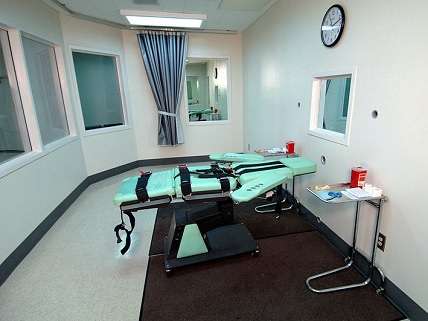Study: One Out of Twenty Five Death Row Inmates Is Innocent


How many American prisoners have been wrongfully convicted of the crimes they're serving time for? Answering that question would help measure the effectiveness the criminal justice system.
Researchers of a study published in Proceedings of the National Academy of Sciences tried to get to this answer by reviewing death penalty cases. Because of the life-or-death stakes involved, a lot more effort is exerted to exonerate death row inmates than any other cohort of inmate.
In fact, according to the research, 1.7 percent of all death row inmates are eventually exonerated. It's a higher number than the one quoted by Supreme Court Justice Antonin Scalia in Kansas v. Marsh, a case about the death penalty. He claimed the error rate was .027 percent. The researchers dismissed that number; they say it was arrived at by extending the exoneration rate of a small subgroup of inmates (capital cases) to the wider American prison population.
Instead, the researchers used the exoneration rate on death row and extended it to inmates whose capital punishment is replaced by life imprisonment, at which point efforts to exonerate them largely subside. Based on that idea, they estimate 4.1 percent, or one in 25, of all death row inmates are innocent, meaning that they would be exonerated if they remained on death row.
In that context, laws like Florida's recently enacted "Timely Justice Act," which aims to shorten the average time between a sentence of death and the execution, only serve to increase the likelihood an innocent person is executed by cutting the amount of time the inmate has to use the courts to argue for his freedom. It's a bugaboo of capital punishment aficionados, this time death row inmates spend trying not to be killed instead of actually being killed. The entire appeals process associated with death row drives the cost of the death penalty well above the cost of imprisoning someone for life. This week's new study shows the importance of giving death row inmates adequate time to mount an appeal. It also calls into question efforts inmates may make to get off death row but remain in prison, as their chances of being successfully exonerated drop precipitously once their life isn't at stake.


Show Comments (74)